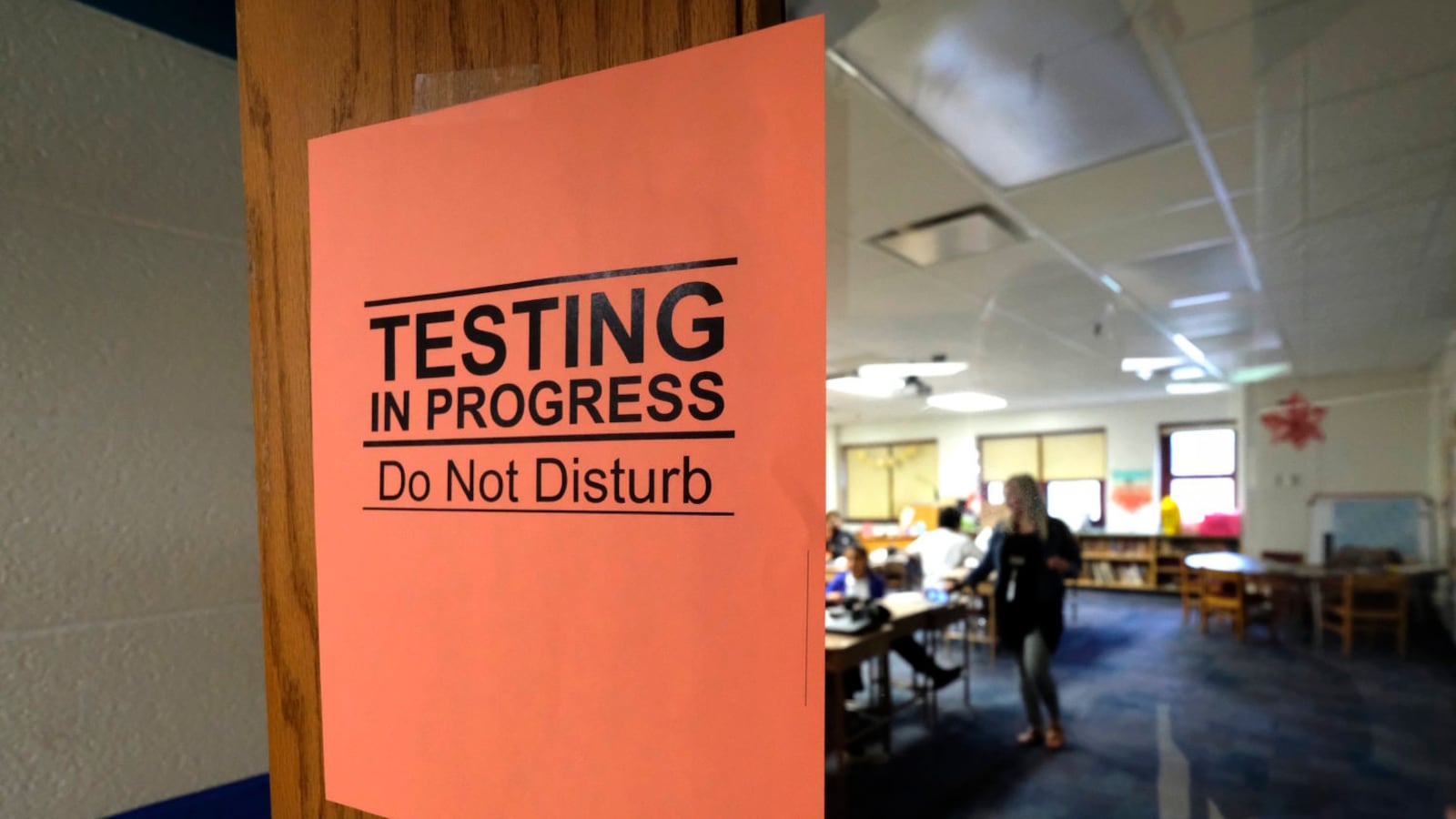What once seemed improbable now seems inevitable.
With the vast majority of U.S. schools closed in an effort to slow the spread of the new coronavirus, states are moving to scrap their federally mandated reading, math, and science tests, which were scheduled for the coming weeks and months.
The U.S. Department of Education has said it will consider allowing states to not test this year. Many states have applied for those waivers, and some, including Colorado and Texas, have eliminated testing requirements without waiting for a response. And at least one state has already called off school for the rest of the year.
Now, the education department is signaling it will be making it easier for states to ask for flexibility.
“Secretary DeVos asked our K-12 team to work on broad waiver authority for the states, and it will be ready to be pushed out to education leaders in the coming days,” department spokesperson Angela Morabito said in a statement Wednesday.
The head of the Council of Chief State School Officers said the organization expects the education department to announce that expedited process on Thursday.
“We want state leaders focused on making decisions about the health and safety of students and teachers and not consumed with questions,” Carissa Moffat Miller said. “State chiefs still strongly believe in assessments and that they’re an important tool for ensuring all students are learning, but it’s not possible or feasible for this spring.”
Increasingly, though, advocates and education leaders are calling for the feds to go further and issue a nationwide waiver.
Federal officials have not indicated that that will happen. In fact, the department told Michigan education leaders Tuesday that the state could not drop state exams because its planned school closures do not overlap with its mid-April testing schedule.
Leaders there pushed back in a letter to Education Secretary Betsy DeVos.
“Upon return to school, our focus nationally should be on instruction, supports, and nurturing of students, not on state summative assessments,” wrote state superintendent Michael Rice and state board of education president Casandra Ulbrich. “By waiving the requirement nationally to provide state assessments under ESSA, you help schools put students first and focus on providing the supports that students will need in the coming weeks and months.”
So far, at least 16 states have suspended, canceled, or delayed state tests or sought a federal waiver to do so, according to Education Week.
In Tennessee, legislation is currently being considered to drop both the federally required testing in grades 3-8 as well as a variety of other tests, including high school end-of-course exams. Testing could be done voluntarily once students return, but couldn’t be used in student grades or in teachers’ and schools’ evaluations — unless the tests ended up helping those scores.
Indiana is asking for permission from the federal government to cancel exams, but hasn’t done so yet.
Colorado, on the other hand, is not waiting. The state hasn’t received a waiver, but officials have already said that testing won’t happen this year.
Calls to scrap testing have come from across the ideological spectrum. Groups long critical of standardized testing have pushed to halt them, but so have some that are more sympathetic to testing.
“State tests are valuable for providing both transparency and some baseline accountability,” wrote Rick Hess of the American Enterprise Institute, a conservative think tank. “But that’s not a good enough reason enough to go forward with the tests this year amidst the coronavirus chaos and a fast-moving national shutdown.”
“I’m a big fan of accountability and transparency in public education,” Colorado Governor Jared Polis, a Democrat, said in a statement Tuesday. “But we will simply have to forgo incredibly useful data on student achievement for a year to help contain the virus.”
“Join us in calling on Betsy DeVos to grant a blanket waiver to allow states to be exempt from all testing requirements,” reads a petition from the Network for Public Education, which generally opposes standardized testing. “Our message is simple. Kids’ health and safety come first. Shut down the tests.”
But at least one organization is saying that states should still figure out a way to assess student performance: Education Trust, an education and civil rights group, and longtime defender of annual testing.
“We take seriously the reality that in some locations assessments simply will not be possible this year,” said Ary Amerikaner, vice president for P-12 policy, practice and research. “However, to protect students’ civil rights, the U.S. Department of Education must support a state — based on the state’s unique circumstances — to develop a plan that ultimately provides teachers and families with accurate information about academic performance using consistent and equitable ways to measure student learning.”
Scrapping the tests will have substantial implications. The exams are widely used to evaluate teachers, decide whether students move on to the next grade, research educational policies, determine which schools are low-performing, and document disparities between schools and districts. In Michigan, for instance, a state law mandated that this year’s tests be used to determine whether third-graders struggling to read get held back a year.


